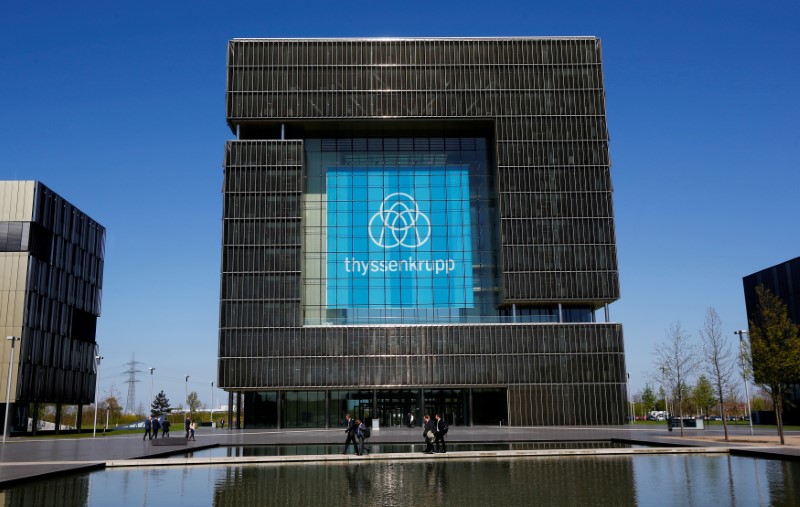DUESSELDORF/BERLIN (Reuters) - German industrial group Thyssenkrupp (DE:TKAG) has not found any evidence of corruption in its handling of a $2 billion contract to sell submarines and naval patrol craft to Israel, it said in a statement on Tuesday.
The 2016 deal has been under public scrutiny since it emerged that Israeli Prime Minister Benjamin Netanyahu's personal lawyer also represented the local agent of ThyssenKrupp Marine Systems, which was set to build the vessels.
Thyssenkrupp said its internal probe of the matter was over for now. It said it was limited by not being allowed to conduct its own investigation in Israel and not having the powers that prosecutors or police have.
"Based on the investigative measures we were able to carry out, we found no concrete indications of corruption – neither with regard to submarine projects, nor in connection with the procurement of corvettes," it said.
"However, these investigation results are explicitly provisional," it added.
The steel-to-elevators group declined to comment on Israeli media reports that the signing of the deal by Israel and Germany for the purchase of three submarines had been postponed in the wake of the ongoing corruption investigation in Israel.
Officials at both the German chancellery and defence ministry declined comment on the postponement. German government officials have previously declined comment on the investigation and proceedings in Israel, describing it as an internal matter for Israel.
Last week, three suspects were remanded in custody and a fourth ordered held under house arrest after Israeli police questioned six public officials and private citizens on suspicion of corruption relating to the deal.

Thyssenkrupp has suspended its relationship with its agent for the deal, Mickey Ganor, and is not currently the subject of German or Israeli investigations, it said.